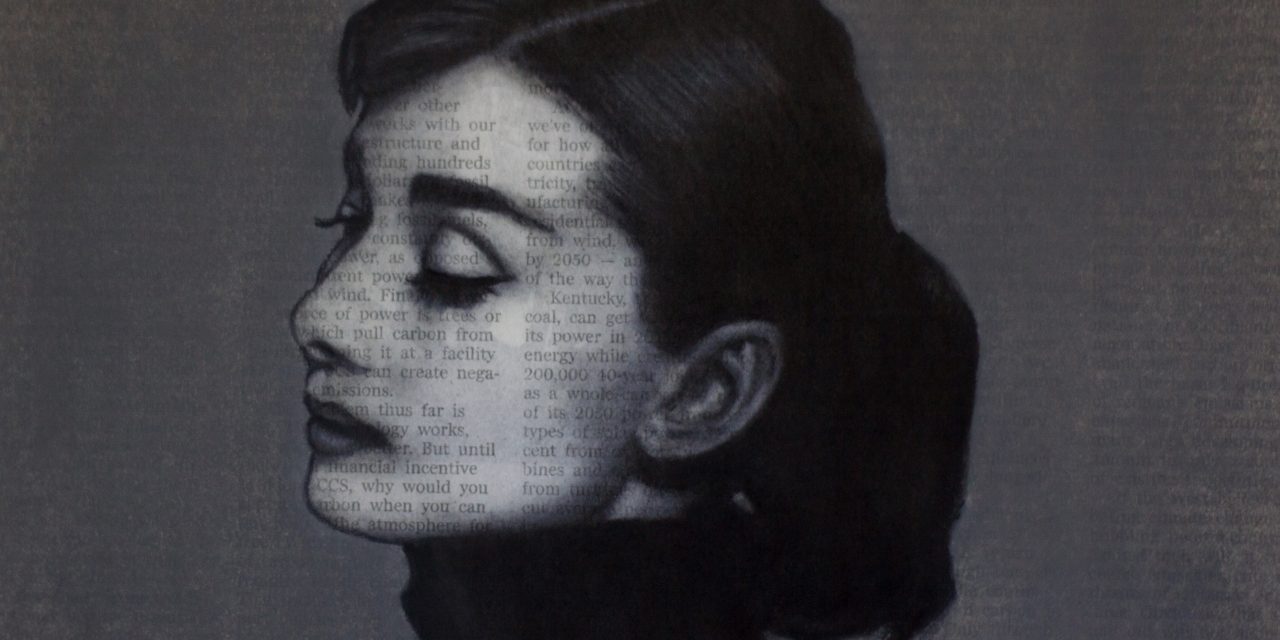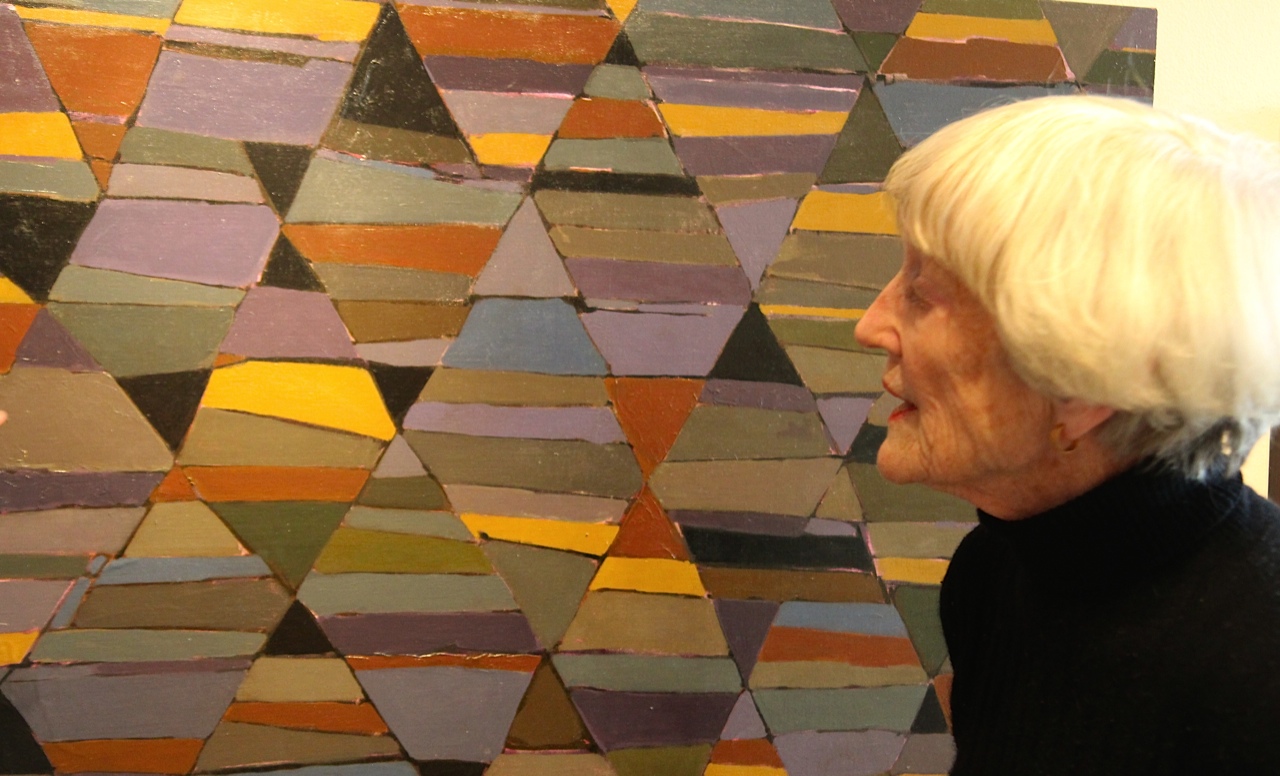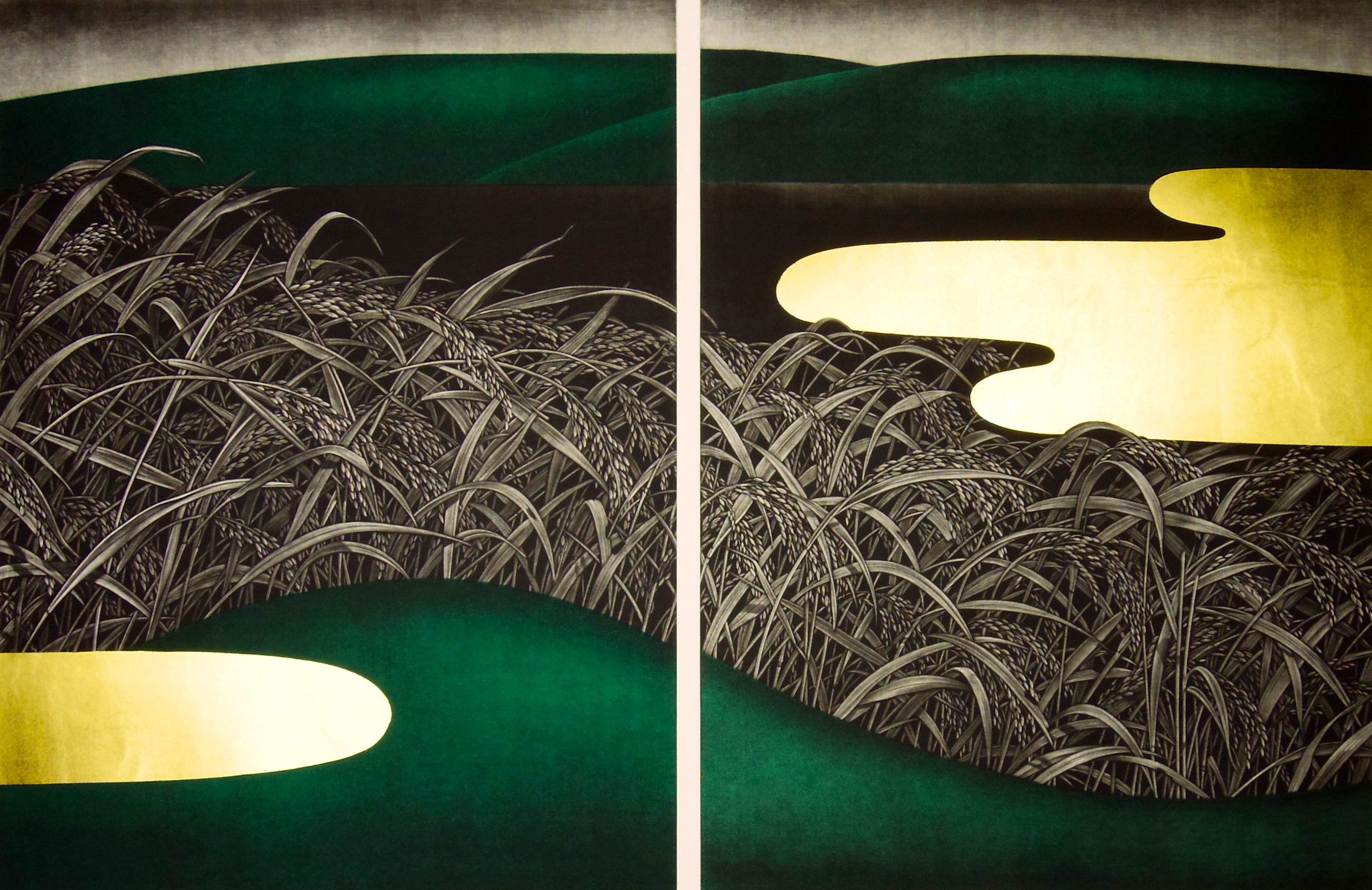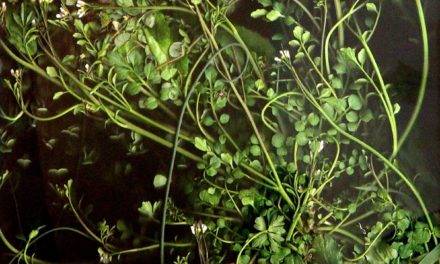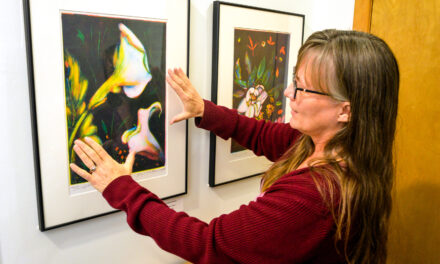(Above: A portrait of the young Audrey Hepburn is one of the images Michael Cross created using his newsprint-and-charcoal technique; photo courtesy of Michael Cross)
By Randi Bjornstad
Until a close friend persuaded him years ago to show his work, Michael Cross says his art “was pretty much a secret.”
“I started out first with abstract painting — at that time I was dealing with some depression issues, and painting gave me some outlet for those emotions,” Cross said. “It wouldn’t be an overstatement to say that painting probably saved my life. Those paintings were very dark, but they helped me to change my outlook.”

The third prong of Michael Cross’ art, along with painting and drawing, is vividly colored landscape photography
Since then, his art has evolved into intricately rendered, drawn portraits, so finely detailed that they look almost like photographs. He’s also taken up landscape photography, producing vivid images of sky and land.
“For me, the entire art process has been very organic,” Cross said. “I have let it happen very slowly.”
Too slowly in some ways, “mainly because I am very bad at self-promotion,” he said wryly. “I’m just not very good at the money part.”
That’s not to say it’s hard to see his work. He has a website at michaelcross.pixels.com where his work can be viewed and purchased. He’s also displays and sells on Facebook at facebook.com/michaelcrossart/.
Learning by doing
Cross calls himself a self-taught artist who “learned both art and photography on YouTube.”
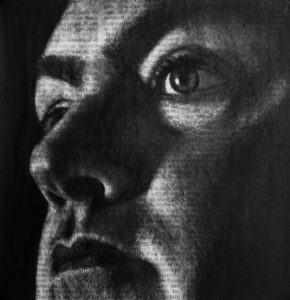
Self-portrait by Michael Cross
“I have never taken an art class,” he said. “I kind of regret that — I’m sure I have a lot of terrible habits that an art teacher would go crazy about. But the way my personality was — I am pretty introverted — I kind of had to do it all myself.”
Cross grew up in Pleasant Hill, in a family that included a mother and sister who both were talented artists, primarily in ceramics, painting and drawing.
“My dad was a logger, but art wasn’t really on his radar screen,” Cross said. “So I was around art, but it was not a key thing.”
In fact, he was more inclined toward the sciences and mathematics, and he also participated in sports. He attended the University of Oregon, where he earned a master’s degree in human physiology.
He worked in social service education and healing for years, but chronic back problems — and repeated surgeries — took their toll.
“I had five surgeries on my back in six years,” Cross said. “My parents were very supportive of me financially, and that made a lot of difference.”
During his many prolonged convalescences when he couldn’t work, Cross began to draw to help pass the time.
“Art can be very inexpensive or even free, so I started teaching myself, learning lines and shading and then studying art theory,” he said. “That’s when I discovered that newspapers, which are very accessible, could become an important medium for my work.”
Drawings as story
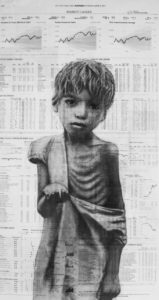
Michael Cross calls this drawing of a starving child on a background of stock market figures, “Inequality”
One day, while waiting for an order of pancakes at the Glenwood Restaurant on Willamette Street in Eugene, he picked up a copy of the local newspaper and began sketching on it with charcoal.
“I was struck by the way the combination of the newsprint and the charcoal became almost its own medium,” Cross said. “The paper was a beautiful color, almost ecru, and the text started to blur, and it became almost three-dimensional.”
Creating portraits on newsprint seemed a natural choice — “It’s kind of the idea that everyone has a story,” he said — and for him it became almost an artistic obsession.
“It became a new direction for me, and it helped me start to feel a connection with people again,” Cross said. “I had dealt with chronic depression my whole life, and I can honestly say that without my parents’ support and my art, I don’t know if I would still be here.”
His interest in photography developed later, starting with his habit of cataloguing his paintings and drawings by photographing them.
“So I went back to YouTube to learn about cameras, lenses, and lighting, and I began going out at all hours of the day and night to photograph landscapes — I love that use of color.”
When it comes to portraiture, however, “I still much prefer drawing,” Cross said.
He’s started a new series, based on body image and presenting figures as they really are.
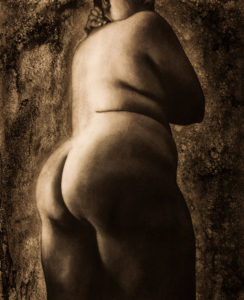
An image from Michael Cross’ “Celebrating Women” project
“I grew up with three sisters, so I definitely got a perspective of the pressures on women with regard to body image in this society,” Cross said. “So I decided it was important to show people as they really are, to find a balance by drawing them both beautifully and realistically.”
The process of maturing and aging — stretch marks, scars, wrinkles and all — “should be appreciated and admired, because those are all parts of life,” Cross said, before admitting that he feels “a little hypocritical saying that, because I personally hate to get my own picture taken.”
Much as his health challenges have constrained his life, they also have contributed to his development as an artist.
“I qualify for disability because of my health issues, and that, combined with commissions for artwork and sales of photographs, allows me to make a living,” Cross said. “It is something I’m very thankful for — my art gives me something that nothing else does.”

An image captured during one of Michael Cross’ nighttime photographic forays

